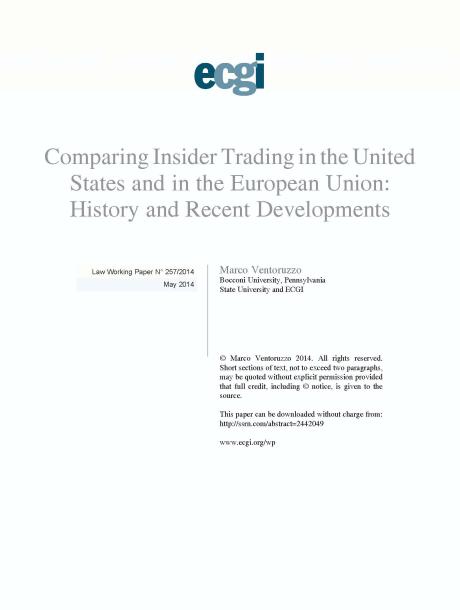
Comparing Insider Trading in the United States and in the European Union: History and Recent Developments
Abstract
In the European Union insider trading has been regulated much more recently than in the United States, and it can be argued that, at least traditionally, it has been more
aggressively and successfully enforced in the United States than in the European Union. Several different explanations have been offered for this difference in enforcement attitudes, focusing in particular on resources of regulators devoted to contrasting this practice, but also diverging cultural attitudes toward insiders. This situation has evolved, however, and the prohibition of insider trading has gained traction also in Europe. Few studies have focused on the substantive differences in the regulation of the phenomenon on the two sides of the Atlantic. This work contributes to the debate by contrasting and comparing insider trading regulation in the U.S. and in Europe, putting them in an historical perspective (essential in particular to understand the U.S. approach), but also considering some recent developments in this area of both sides of the Atlantic: the 2009 Dorozhko decision in the U.S., which seems to expand the notion of misappropriation; the reform of the Market Abuse Directive in Europe; and the very recent case Grande Stevens v. Italy
decided by the European Court of Human Rights in March 2014, which deeply affects the European approach to insider trading. One of the contributions of the piece is to underline how the U.S. has both the advantages and disadvantages of the ?first comer? in this area. Since when the Supreme Court abandoned the ?equal access to information? theory in favor of a theory of insider trading based on fiduciary duties, an overly complex web of rules developed through an intricate web of case law and SEC regulations. Comparatively speaking, the European approach, based on the ?equal access to information? theory is more clear, easy to apply and broad, even if some authors have questioned the effectiveness of actual enforcement of these rules in some European countries.






